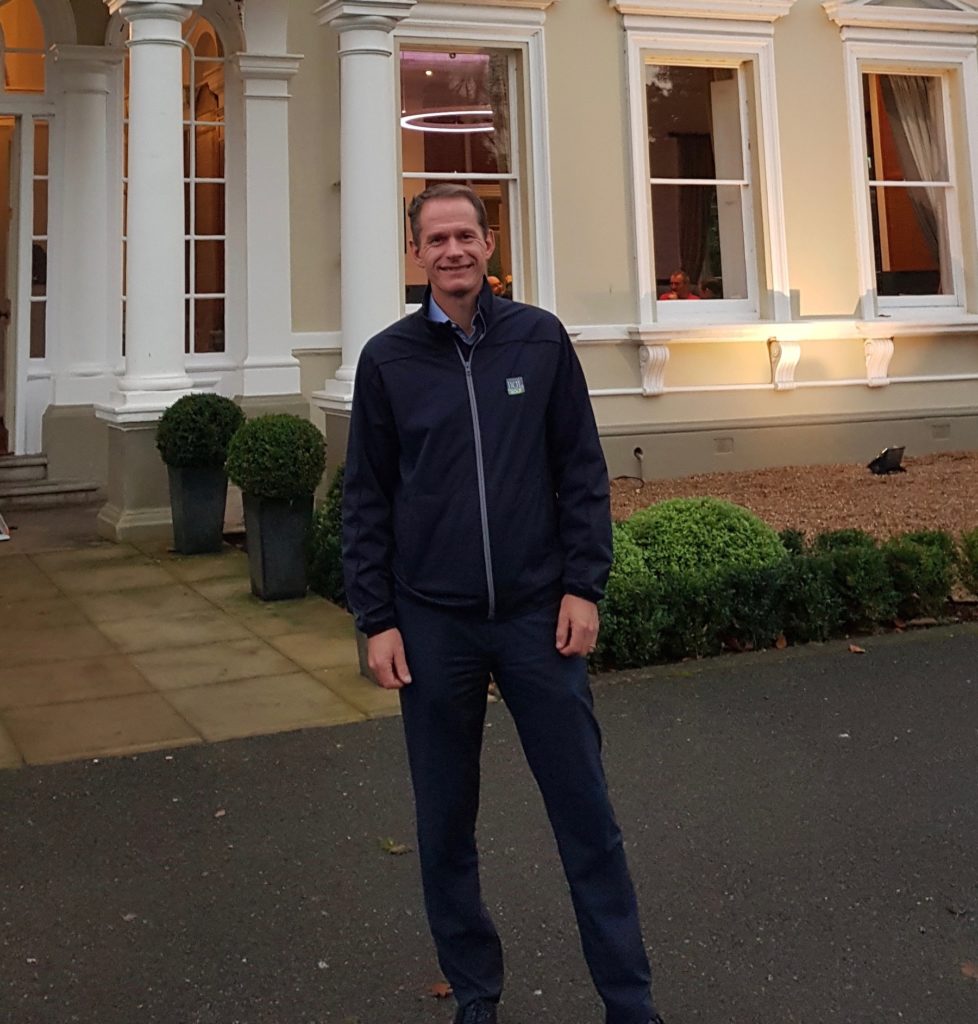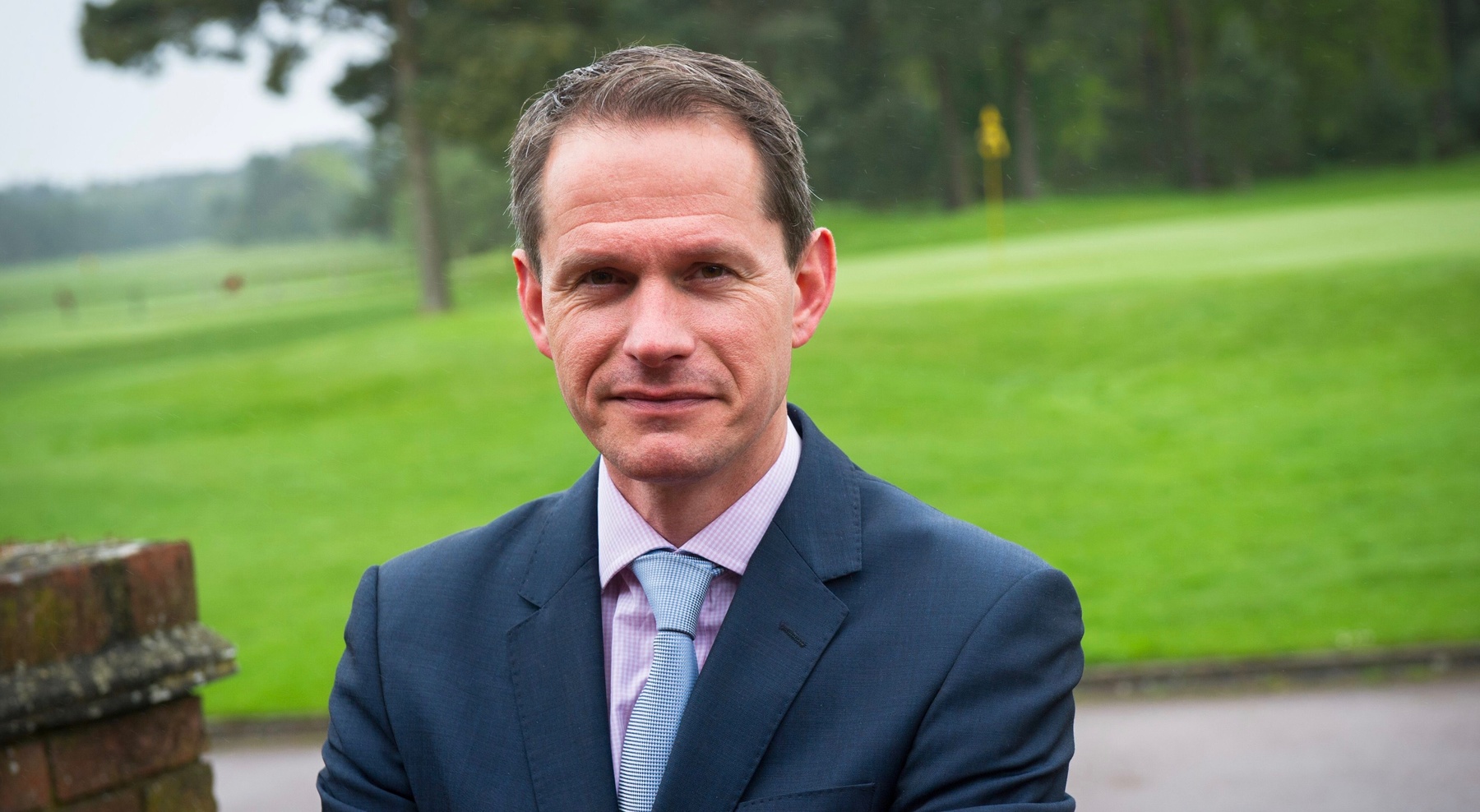GBN meets Burhill Golf and Leisure’s golf operations director Guy Riggott, who boasts over 25 years’ experience in golf club management, to discuss the demands of running golf clubs in the current climate
What is your role at Burhill Golf and Leisure?
BGL runs three main business divisions – golf, adventure leisure and property. I oversee golf, the heart of BGL. Spread across ten venues, each venue has multiple revenue streams and there are in excess of 600 staff, leaving me spinning a lot of plates.
My main focus is on the horizon, ensuring we have the right balance of products and people for our businesses to thrive. It’s so important to track each venue’s performance, which we do through a variety of different metrics. Good data allows good decisions. It’s crucial in this market to be actively seeking new business, so I spend a lot of my time developing key sales strategies, never resting on our laurels. From my experience, I find too many golf businesses are reactive, whilst we remain hungry to grow sales. It’s this sales culture, combined with a strong marketing strategy at each of our venues, that gives me confidence for the future as we stay ahead of the ever-increasing cost base.
It was a long, sweltering summer in the UK, how did BGL fare through this warm spell?
Firstly, I would say it was a hot spell, not just a warm one and there’s certainly a sweet spot for golfers. Not too hot, not too cold. Having complained about the Beast from the East, the opposite this summer took some of the froth out of golf rounds.
What this period of drought again highlighted for all is how finite water is. Our investment over the past 10 years in golf course water security certainly paid off, but it still highlighted to us that we still have a number of weaknesses, which confirms the wisdom of the ongoing investment in reservoirs and replacing old infrastructure to raise water efficiency levels. With increased regulation and pressure from house building there is increasing pressure on water resources, especially in periods of drought, so it’s vital to store as much water as possible during months of heavy rainfall.
I’d imagine Q1 was somewhat tougher? Would you say you have caught up the business you may have lost due to the adverse winter?
It is very difficult to get back lost rounds of golf. If you normally play, say, four rounds of golf in March, a golfer won’t generally make up the four rounds later in the year. You just don’t get those rounds back, but the encouraging thing was that once we got out of the elongated winter period of March and April, rounds of golf bounced back in May and June.
It was a very tough start to the year; however, it was the same for all golf clubs in the UK and around Europe actually – even the Spanish were complaining. Another factor that impacted business this summer was the World Cup. With the football kicking in, so to speak, July slowed down with the Southgate effect, not just on the course, but our driving ranges too. As soon as the World Cup finished, rounds bounced back, and we enjoyed a strong August, September and October.
How do you feel golf clubs in the UK are dealing with the changing demands from consumers?
I’d say that lifestyle demands on golfers are changing, which leads them to change their habits and behaviour. Much of our customer profile is time-poor and we’ve seen a lot of demographic shifts in our golf customers, for example, +60-year-olds are healthier and much more active, whilst 20-30 year olds struggle to buy houses, squeezing incomes and pushing golf out of their agenda.
We stick to the belief that if you produce a good product, staffed with good people, you can be a part of the community and somewhere people want to come and spend their time. I find it’s important to focus on what’s in your control and make sure you’re doing everything to improve your product; you can too easily lose sight of this, spending too much time worrying about what everyone else says.

What do you feel the outlook will be for the next few years?
Golf does need to change slightly. Not the great game itself, but how it’s managed. I do believe it has a very positive future, partly because of the way lifestyle changes are occurring. If golf clubs can shed their old ways for new they will have a place in the future, as a place of community, not just providing physical benefits, but mental and social as well.
Golf has a big part to play in society for the future, but customers will not accept a poor experience or bad customer service. Ensuring that our customers get good quality and value for money from our products is essential in keeping them coming back. I also believe the market will continue to split, with mediocre clubs going one way!
There have been a lot of initiatives to grow golf recently, what do you think of them and what do you feel is required really required to grow the game?
Personally, I’m not sold on lots of initiatives driving the growth in the game. I believe if you create a good environment, which is well invested with good people, and you have a sales force actively trying to attract people then golfers will come.
Using this mentality, we’ve managed to grow golf club membership revenue by more than 20% in the past five years, which helps us to sustain the business. This has, of course, been mixed in with the good work of our individual venues attracting new golfers through a variety of enterprising, locally led initiatives.
Many BGL venues are multi-purpose destinations, can other clubs learn from this?
My advice would be to not keep your eggs in one basket. If I was to put a figure on an ideal mix of revenue breakdown, I would say a third from the tee sheet, be it green fees and membership; a third from food and beverage; and a third in ancillary spend, be it retail, buggies, teaching etc.
How much is golf a priority at venues such as Birchwood Park Golf & Country Club, where so much has been invested into the health and leisure facilities?
Golf is the core business for all our venues and it always will be. For golf to be successful it’s important to wrap the other elements around it in order to make the venue a destination and an integral part of the community; Birchwood Park is no different.
Is BGL on the lookout for more venues to add to the portfolio?
We are always inquisitive, but we make sound commercial decisions based on what we feel is right. If a good opportunity arises with a good business in a good location then we would consider it, but we won’t pay over the odds for emotional reasons, we’re not interested in trophies.
Is the demand for land for property having an effect on the prices of clubs for sale?
In many cases, we have seen the competition for land (houses) increasing and having a knock-on effect on price. However, that’s not the game we’re in. If the commercial numbers don’t work for us, we won’t look any further at a property. Every investment that BGL takes needs to stand on its own two feet and be viable commercially, an important discipline if we are to successfully grow.
What is the one aspect of your job you would most like to change?
Golf is a hugely positive business to work in, but there are a lot of moving parts. If there was one thing I could wish for it would be more time in the day. Our 10 clubs are spread across the country, from Telford and Nottingham down to Kent and over to Bristol, so there’s a lot of travelling involved.
It’s important to have boots on the ground at each of the venues, but it’s simply not possible to spend all my time doing that. I make sure I touch base with all our venues as often as possible, as it’s important to know the teams. At the same time, it’s important to take time to step back and take a broader view of the company and industry landscape and judge what the future holds.
BGL’s portfolio of golf centres and clubs comprises Abbey Hill Golf Centre, Milton Keynes; Birchwood Park Golf & Country Club, Dartford; Hoebridge Golf Centre, Woking; Ramsdale Park Golf Centre, Nottingham; The Shropshire Golf Centre, Telford; Thornbury Golf Centre, Bristol; Wycombe Heights Golf Centre, High Wycombe; Aldwickbury Park Golf Club, Harpenden; Burhill Golf Club, Walton on Thames; and Redbourn Golf Club, St Albans.
For more details, visit www.bglgolf.co.uk

